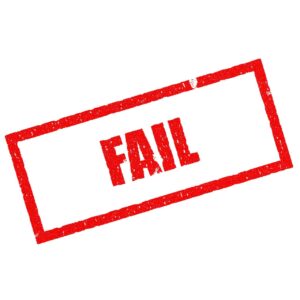Most Effective Ways to Increase Your Small Business’s Market Share
As a small business owner, you are always looking for ways to grow your market share and gain a competitive edge. This isn’t an easy task to take on and it becomes even more difficult if you don’t know where to start. So, let’s take a little time to explore the most effective strategies to help you increase your small business’s market share, allowing you to reach new customers and maximize your profits.Understand Your Target Market
Before you can increase your market share, you need to understand your target market. Conduct thorough market research to identify your ideal customer and their needs, preferences, and buying habits. This information will help you tailor your products and services to meet the specific demands of your target market, making it easier to attract and retain customers.Focus on Customer Retention
Acquiring new customers is important, but retaining existing customers is equally crucial. It is more cost-effective to retain existing customers than to acquire new ones. To increase customer retention, focus on providing exceptional customer service, offering loyalty programs, and regularly soliciting feedback from your customers to understand their needs and concerns.Leverage Social Media and Digital Marketing
In today’s digital-centric age, having a strong online presence is essential for increasing your market share. Utilize social media platforms to engage with your target audience, share valuable content, and promote your products and services. Invest in digital marketing strategies such as search engine optimization (SEO), pay-per-click advertising, and content marketing to reach a wider audience and drive more traffic to your website.Offer Unique and High-Quality Products or Services
To stand out from your competitors, you need to offer unique and high-quality products or services that cater to the specific needs of your target market. Continuously innovate and improve your offerings to stay ahead of the competition and maintain your market share.Collaborate with Other Businesses
Collaborating with other businesses can be a powerful way to increase your market share. Look for opportunities to partner with complementary businesses to create joint marketing campaigns, co-branded products, or bundled services. These partnerships can help you reach new customers and increase your brand visibility.Expand Your Product or Service Offerings
Expanding your product or service offerings can help you attract new customers and increase your market share. Conduct market research to identify new opportunities and gaps in the market, and develop new products or services to meet the needs of your target audience.Monitor and Analyze Your Competitors
Keep a close eye on your competitors and analyze their strategies to identify areas where you can improve and differentiate your business. By understanding your competitors’ strengths and weaknesses, you can develop strategies to outperform them and increase your market share. This will likewise help you uncover and identify some of your own shortcomings – providing very valuable insight.Wrapping It All Up
Increasing your small business’s market share requires a combination of strategic planning, customer focus, and innovation. By understanding your target market, focusing on customer retention, leveraging social media and digital marketing, offering unique and high-quality products or services, collaborating with other businesses, expanding your offerings, and monitoring your competitors, you can successfully increase your market share and grow your small business.Want to Accomplish More?
Do you want your company to grow faster and earn more while you spend more time with your family doing all the things you started your business to do?We can make that dream a reality. Give us 30 minutes and we will show you how to get your life back. Skeptical? Good! Put us to the test.
You can call us for your free appointment at 602-435-5474, or, if you prefer, send us an email. You can also visit us at Waters Business Consulting Group to learn more about us and the services we offer.


